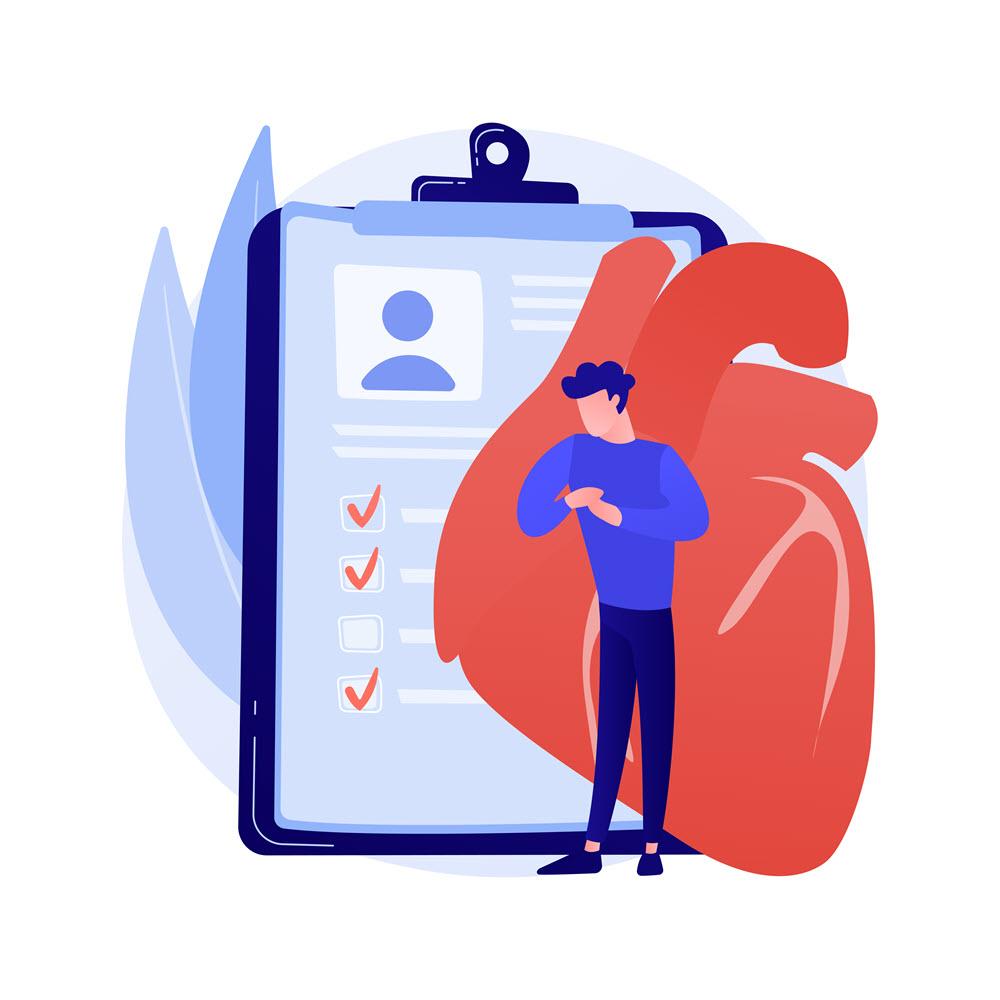Heart & Cardiovascular
Heart Arrhythmias
By S.I. (staff writer) , published on January 02, 2022

Medicine Telehealth Health heart tachycardia
What is Heart Arrhythmia?
Heart arrhythmia is a cardiac disorder characterized by an irregular and uneven heartbeat due to improper functioning of the electrical signals that coordinate the heartbeats. This incoordination results in the heart beating either too fast or too slow known as tachycardia and bradycardia respectively [1].
Arrhythmias generally feel as if the heart is fluttering or skipping a beat or beating more than normal. Arrhythmias are asymptomatic in mild cases. But in severe cases, arrhythmias can be bothersome. Severe arrhythmias show several signs and symptoms. If you feel something unusual in your heartbeat, book an appointment with your health care provider right away.
What are the Types of Arrhythmias?
In some cases, arrhythmias are benign and asymptomatic. However, they can be fatal as well in severe cases. Heart rate may raise after some exertion while it comes down during rest and sleep. So, arrhythmias are not always an emergency. Heart arrhythmias are of two types:
- Tachyarrhythmia: When the resting heart rate exceeds 100 beats per minute, it is called tachyarrhythmia. They are further of several types such as atrial flutter, atrial fibrillation, etc.
- Bradyarrhythmia: When the resting heart rate is less than 50 beats per minute, it is referred to as bradyarrhythmia. Like tachyarrhythmias, they can also be divided into several types such as sinus bradycardia, junctional bradycardia, etc.
What are the Signs and Symptoms of Arrhythmias?
Some of the common symptoms of Arrhythmias are given below [3]:
- Chest discomfort and the shortness of breath
- Lightheadedness or dizziness
- Palpitations and pounding in the chest
- Fainting (syncope) and sweating
- Anxiety
- Chest pain and pressure
- Rapid heart rate
- Fluttering in the chest
- Weakness and fatigue
- In severe cases, it can lead to collapse or sudden cardiac arrest.
What are the Causes of Arrhythmias?
Some of the commonly encountered causes of heart arrhythmias are the following [4]:
- Diabetes mellitus or high blood pressure (hypertension)
- Overactive thyroid gland (hyperthyroidism) or underactive thyroid gland (hypothyroidism)
- Coronary artery disease
- Cardiomyopathy
- Consumption of too much caffeine
- Alcohol abuse
- Smoking or drug abuse
- Stress and anxiety
- Medications against allergies or cold
- Sleep apnea
- Covid-19 infection
- Genetics
What are the Treatment Options of Arrhythmias?
The treatment option for arrhythmia is opted according to the severity or the type of the irregular heart rhythm. Some of the treatment options for Arrhythmias are discussed below:
- Medications: Antiarrhythmic drugs can convert the irregular heart rhythm to the normal sinus rhythm. Some of the important antiarrhythmic drugs are as follows [5]:
- Sotalol
- Amiodarone
- Flecainide
- Propafenone
- Dofetilide
- Dronedarone
- Invasive therapies
Invasive therapies can also help the heart restore its normal rhythm. Here are some common invasive procedures for arrhythmias:
- Electrical cardioversion
- Catheter ablation
Heart surgery
The irregular heart rhythms which fail to respond to medications, lifestyle changes, or invasive therapies, are corrected by performing the surgery of the heart.
Atrial fibrillation is correct with the help of two types of surgeries:
- The Maze
- Modified Maze procedure
Electrical devices like pacemakers replace the defected SA node to restore the normal sinus rhythm (NSR) of the heart.
References:
- https://www.ncbi.nlm.nih.gov/books/NBK558923/#:~:text=Arrhythmia%20is%20an%20abnormal%20rhythm,the%20atrioventricular%20node%20(AV).
- https://www.ncbi.nlm.nih.gov/books/NBK558923/
- https://www.ncbi.nlm.nih.gov/books/NBK558923/#:~:text=Signs%20%26%20Symptoms%3A%20Sudden%20tachycardia%2C,%2C%20chest%20tightness%2C%20or%20syncope.
- https://www.ncbi.nlm.nih.gov/books/NBK209966/
- https://www.ncbi.nlm.nih.gov/pmc/articles/PMC3147219/
Find articles related to: Medicine Telehealth Health heart tachycardia
More articles about Heart & Cardiovascular
Back to the Health Tips Index




